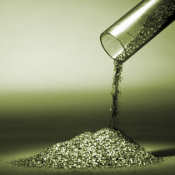 According to documents posted today on the website of the Bureau of Industry and Security (“BIS”), Pennsylvania-based Ameri-Source, Inc., a manufacturer of graphite and other carbon products, agreed to pay an $11,500 penalty to BIS. The payments was to settle charges that Ameri-Source had violated section 764.2(b) of the Export Administration Regulations by supplying false information to its freight forwarder which in turn caused the freight forwarder to file a false SED. Thomas Diener, a Director of Ameri-Source, also agreed to pay $11,500 to BIS to settle the same charges.
According to documents posted today on the website of the Bureau of Industry and Security (“BIS”), Pennsylvania-based Ameri-Source, Inc., a manufacturer of graphite and other carbon products, agreed to pay an $11,500 penalty to BIS. The payments was to settle charges that Ameri-Source had violated section 764.2(b) of the Export Administration Regulations by supplying false information to its freight forwarder which in turn caused the freight forwarder to file a false SED. Thomas Diener, a Director of Ameri-Source, also agreed to pay $11,500 to BIS to settle the same charges.
The description in the charging documents of the violation suggests that more was going on than meets the eye:
On or about December 2, 2003, Ameri-Source caused, aided, abetted, and permitted the doing of an act prohibited by the Regulations, bu causing, aiding, abetting and permitting the making of a false representation or statement to the U.S. Government in connection with the preparation and submission of a Shipper’s Export Declaration (SED), an export control document. The SED falsely represented and stated that the item being exported from the United States was “UCAR-GRAPHITE.” In fact, an Ameri-Source employee and others created a forged mill certificate falsely indicating that the item was “UCAR” graphite. The forged certificate was then submitted to a freight forwarder. Based on this false information, the freight forwarded prepared and filed an SED falsely stating that the item was “UCAR-GRAPHITE” In so doing, Ameri-Source committed on violation of Section 764.2(b) of the Regulations.
UCAR is a brand of graphite manufactured and sold by GrafTech International, Ltd.
What is odd about this description of the violation is its failure to state what exactly was the product in the shipping package. Was Ameri-Source trying to pass off it’s graphite product as UCAR-branded graphite? And if so, even though this is a technical violation of the rules, why on earth would BIS care? Did the package contain an item that required a license? If so, why wasn’t Ameri-Source charged with the export violation? Or perhaps the product in the box was subject to a higher import duty at the destination than graphite. If so, why wasn’t there a criminal prosecution under 18 U.S.C. § 1001(a)(3), such as happened to this exporter who mislabelled goods to defraud foreign customs authorities?
Rampant speculation and wild conjecture about the answers to these questions and what was in fact in the shipped package are invited in the comments to this post.
 Permalink
Permalink
Copyright © 2009 Clif Burns. All Rights Reserved.
(No republication, syndication or use permitted without my consent.)

 Posted by
Posted by  Category:
Category: 

